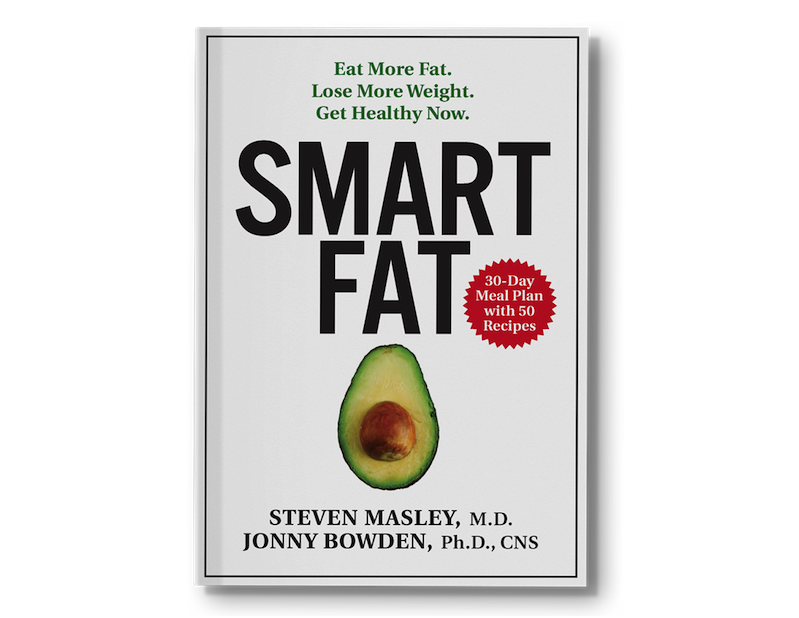Jonny Bowden, PhD, CNS is a nationally known expert on weight loss, nutrition, and health. Not only is he a board-certified nutritionist with a master’s degree in psychology, but he’s also the author of fourteen books on health, healing, food, and longevity! His new book, Smart Fat, just came out, so I thought it was the perfect time to turn to him to reveal the five things we probably didn’t know about fat. Fittingly, his book has the fatty green of the moment, avocado, on its cover.
“Fat is the Rodney Dangerfield of food groups—not only doesn’t it get any respect, it’s the most misunderstood of all the macronutrients,” Bowden told us. So here are five things you never knew about fat. Spoiler alert: you may never think of butter in the same way again!
1. Saturated fat does not cause heart disease. After years of being demonized for “raising cholesterol” and “clogging your arteries,” the latest research is quite clear—saturated fat does not (and never did) cause heart disease. Two major meta-analyses involving hundreds of thousands of patients and published in two distinguished peer-reviewed journals came to the same conclusion: Saturated fat? “Not guilty.”
2. Fat doesn’t make you fat. In fact, the opposite is true. Weight gain is driven by hormones, particularly insulin, the “fat storing” hormone. The macronutrient that drives insulin up the highest is carbohydrates. Dietary fat has no impact on insulin, making it your best ally in the fight against weight gain.
3. The old notion that animal fats are bad and plant fats are good is out of date. The only bad fats are toxic, and toxicity has nothing to do with whether the fat came from an animal or a plant.
4. Fat is the best source of energy on the planet. Your body can store about 1,800 calories of carbohydrate (as something called glycogen), but it stores about 87 gazillion calories as fat. Why do you think endurance athletes train to be more effective at burning fat rather than sugar? Your body makes 36 molecules of ATP, the currency of cellular energy, from one molecule of glucose (sugar), but it makes between 48-144 molecules of ATP from one molecule of fat.
5. Fat is necessary to absorb many vitamins and other good things in food. Vitamins E, A, K, and D all require fat for absorption as do many important nutrients like the carotenoids, lutein, and zeaxanthin.
The bottom line: Fat is your best friend for both weight loss and for overall health. The trick is to consume the right ones. Choose fats that are either “smart” (those that have been shown to have specific health benefits in human studies) or “neutral” (fats that won’t necessarily help you, but won’t harm you a bit), while avoiding “toxic” fats at all costs.

